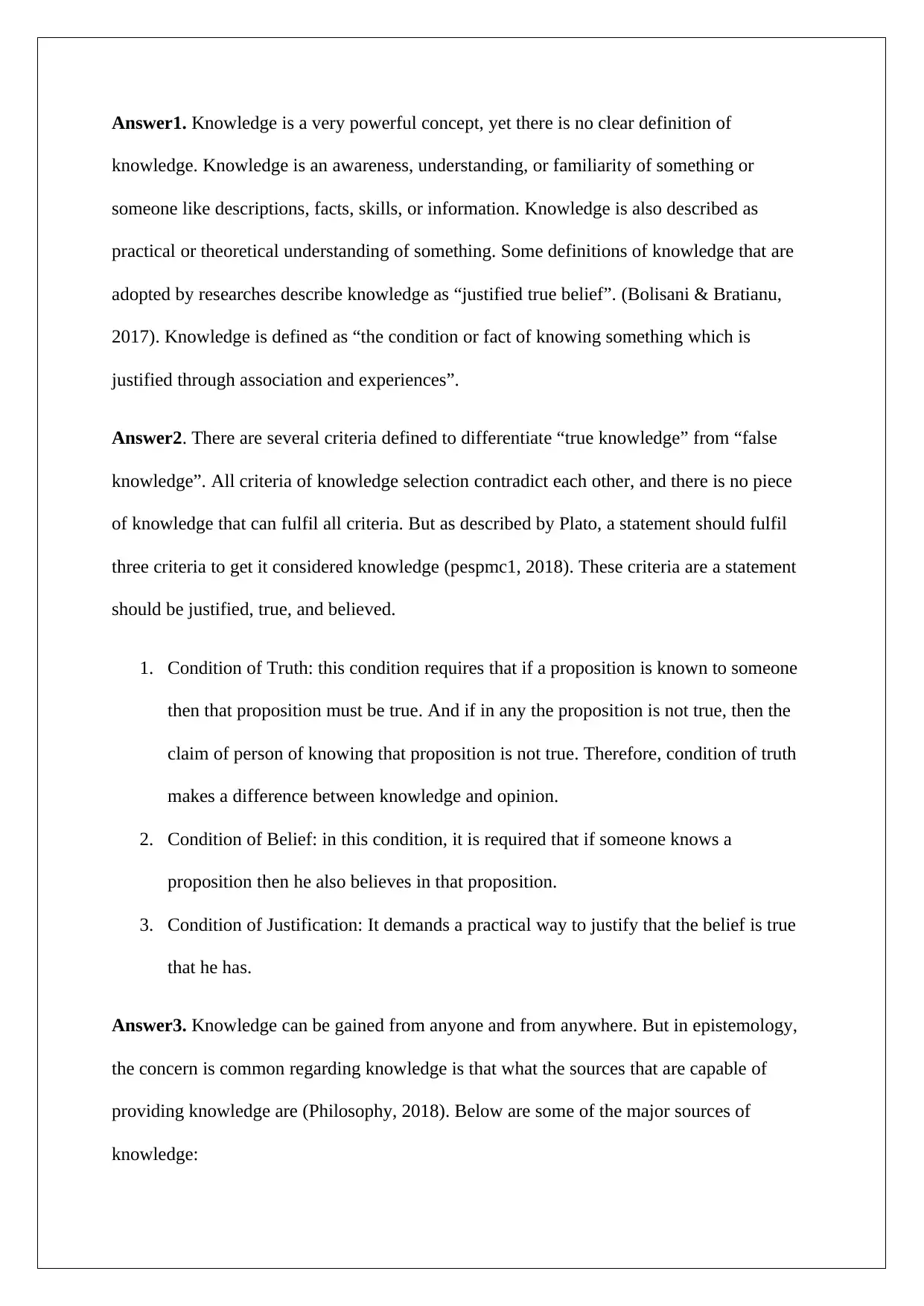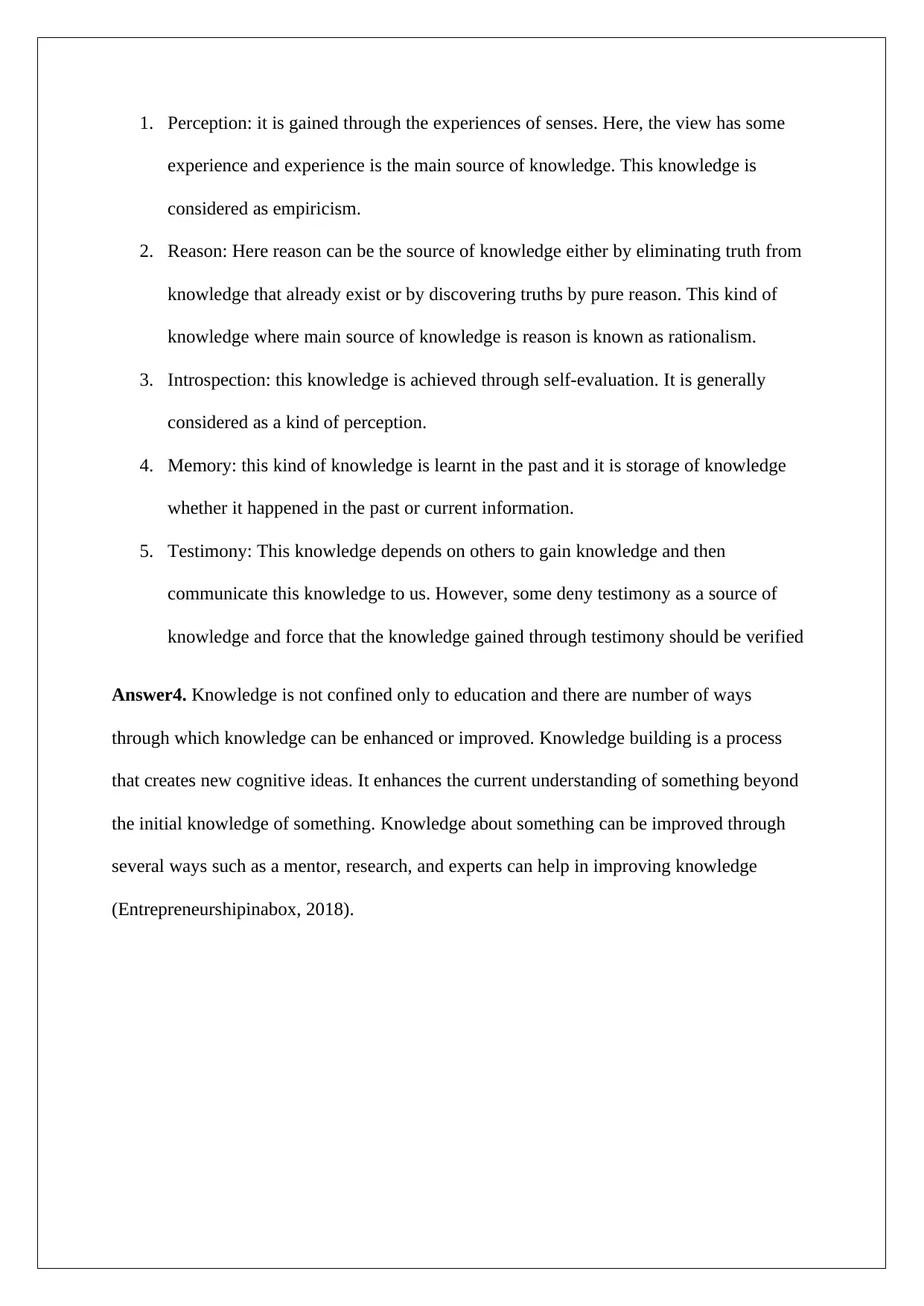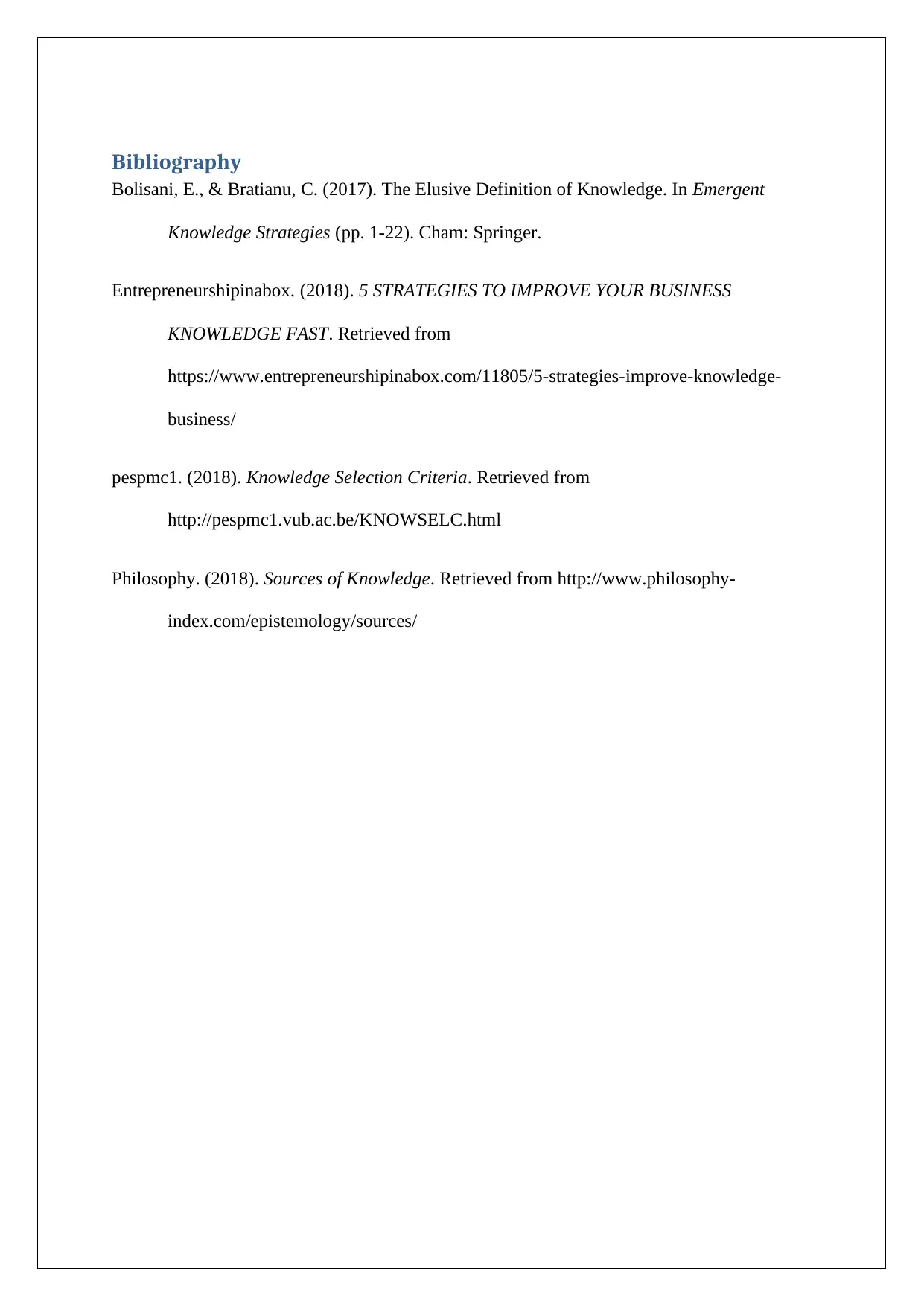Epistemology: Defining Knowledge, Sources, and Criteria
VerifiedAdded on 2022/01/04
|3
|654
|23
Homework Assignment
AI Summary
This assignment delves into the multifaceted concept of knowledge, beginning with its elusive definition and exploring various perspectives, including 'justified true belief'. It then outlines the criteria used to differentiate between true and false knowledge, emphasizing the conditions of truth, belief, and justification as proposed by Plato. The assignment further investigates the primary sources of knowledge, such as perception, reason, introspection, memory, and testimony, and how they contribute to our understanding. Finally, it discusses the process of knowledge building, highlighting ways to enhance and improve knowledge through mentorship, research, and expert guidance. This solution provides a comprehensive overview of key epistemological concepts.
1 out of 3










![[object Object]](/_next/static/media/star-bottom.7253800d.svg)